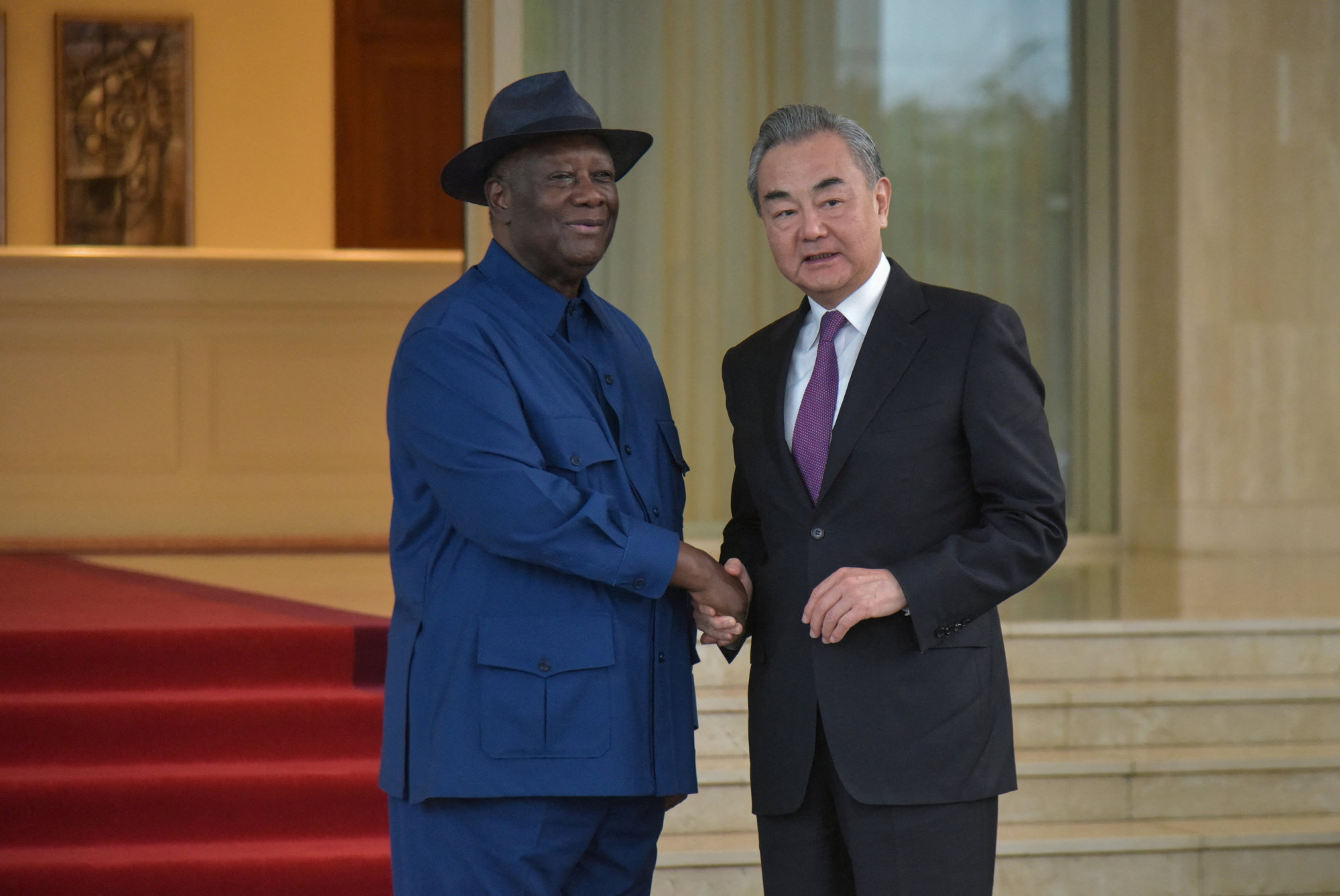
How China’s ‘stadium diplomacy’ is looking to make its mark at the Africa Cup of Nations
- Football tournament being hosted by Ivory Coast features three venues that were built using Chinese money
- Chinese Foreign Minister Wang Yi has hailed the ‘high quality’ stadiums as ‘symbols of mutually beneficial cooperation’ with West African country
These include the 60,000-seat Alassane Ouattara Stadium north of Abidjan, also known as the Olympic Stadium of Ebimpé.
It is Ivory Coast’s largest stadium and was financed by US$40.6 million from the China International Development Cooperation Agency or China Aid – Beijing’s official foreign aid and global development agency.

There is also the US$107.5 million Laurent Pokou Stadium in San Pedro, funded by the Industrial and Commercial Bank of China.
According to China’s nationalist tabloid Global Times, the country has built more than 100 stadiums across Africa.
“All of this is part of a long-term policy of ‘stadium diplomacy’ which China has been deploying across the continent,” Simon Chadwick, a professor of sport and geopolitical economy at SKEMA Business School in France, and Chris Toronyi, a PhD candidate and lecturer at Loughborough University in Britain, wrote in news and commentary site The Conversation.
“Linked to the Belt and Road Initiative, which is intended to promote trade and foster interdependence between China and other nations, stadiums have frequently been gifted to African nations [or else paid for using relatively cheap loans],” they wrote in the January 2 article.
Paul Nantulya, a China specialist at the Africa Centre for Strategic Studies in Washington, said this was a useful way to build influence.
“It is a cost-effective way of generating political influence with different elites,” Nantulya said.
“China is essentially benefiting from those economies of scale,” Nantulya said.
Meeting President Alassane Ouattara in the economic capital Abidjan on January 17, Wang said the hosting of Afcon was “not only a grand event for the African people, but also the pride of Ivory Coast”.
“The main stadium built with China’s assistance for Ivory Coast was delivered on time and with high quality … and has become a symbol of mutually beneficial cooperation between China and Ivory Coast and a symbol of China-Africa friendship,” Wang said.
Chinese-backed AIIB seeks to boost Ivory Coast’s trade links to Asia
The Alassane Ouattara Stadium hosted Ivory Coast’s three group matches, which included a win and two losses.
Meanwhile, Beijing is also trying to expand its soft influence beyond steel and concrete.
In Namibia, Tanzania and Zimbabwe, Chinese instructors not only regularly teach at military colleges Beijing has bankrolled and built, but also play a role in developing the curriculum.
In Tunisia, where Beijing has financed and built the Tunis International Diplomatic Academy, Chinese instructors are expected to work with local officials on diplomatic engagements and policy.
“It also comes with training, which I call the software aspect of it and that’s where really the influence comes in,” Nantulya said.

